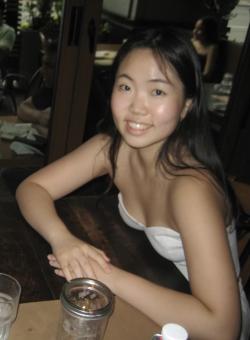 When I entered junior kindergarten, I only spoke Korean. My mother has a literature and linguistics background and understood that even if my English was a little behind, my young, plastic brain would be able to catch up merely by being immersed in the environment. Yet as I grew older, my Korean abilities began to deteriorate as my tongue became occupied by English.
When I entered junior kindergarten, I only spoke Korean. My mother has a literature and linguistics background and understood that even if my English was a little behind, my young, plastic brain would be able to catch up merely by being immersed in the environment. Yet as I grew older, my Korean abilities began to deteriorate as my tongue became occupied by English.
My entire academic journey thus far has been tailored towards science. Consequently, when I made a change and took business classes this semester, I struggled (particularly with accounting). I saw a friend of a friend who was supposedly exceptional at accounting, and I asked him, “What’s the secret? I have no idea how to study for this.” He told me that it’s a language, and like any other language, I should start with the rudiments and basic terminology.
What he said lingered, though, because stepping into Goodes Hall felt like stepping into a new country. I could hear the chatter; I could hear my professors talking; but all of it was incomprehensible. To make sense of this new place, I had to tailor my study habits accordingly.
First semester, I was petrified to go to office hours. It’s so, so daunting. Especially knowing that my professor sees thousands of other students—I know they don’t know who I am. Not this semester, though. I mustered up all (which is not much) of my courage and marched into my professors’ email inboxes and their offices. More times than not, when I ask an upper year what they wished they had done sooner, or what they would do if they were in my position, they tell me that they would have gone to office hours earlier. And I concur.
Accounting and chemistry have required a repetition-based approach (practice problems!!!), which is very different from my other classes—psychology, Indigenous studies, and organizational behaviour. The advantage of social sciences and arts is that they are extremely interdisciplinary, at least in my experience. To study for those classes, it has been critical for me to make connections across subjects. I’ve had to ask myself, “how can I apply what I learned in psychology to organizational behaviour and Indigenous studies, and vice versa?”
Despite my social tendencies, I have a strong affinity for studying alone. I have begun to make exceptions though, and I have an internal rulebook for how I go about my group study sessions. For me, personally, I have found I am more productive when I am in a group with individuals I am not close with. It keeps the environment professional and prevents me from deviating from the subject matter. Go in with a plan. This is critical. When I study alone, I take a more organic approach; however, when studying with others, I’m cognisant that they do not share my brain. Studying with intention and organization has made all the difference for me. Group studying should be enjoyable—capitalize on the fact that you are around people! It’s the grown-up, studious equivalent of playing in the sandpit. Instead of reinforcing the foundation of a sandcastle, you are reinforcing the concepts learned in class.
In my sandpit days, I didn’t consider the downsides of my dwindling Korean, but as I have gotten older, I regret that I had not kept up and yearn to be better. I am consumed by the same fear in an academic context—what if I switch disciplines and wish I had not years later? What if I like science more than I thought I did?
I think of the connection between language and thought. As you become more linguistically adept, the more complex thoughts you can have. There are some words in Korean that have no English translation and, similarly, there are some words in English that have no Korean translation. I attribute much of my intellect to the fact that it was formed by a mix of both. Fear is present, but my curiosity is stronger—and I am so eager to find out how learning both the languages of science and social science will shape the scholar I am to become.